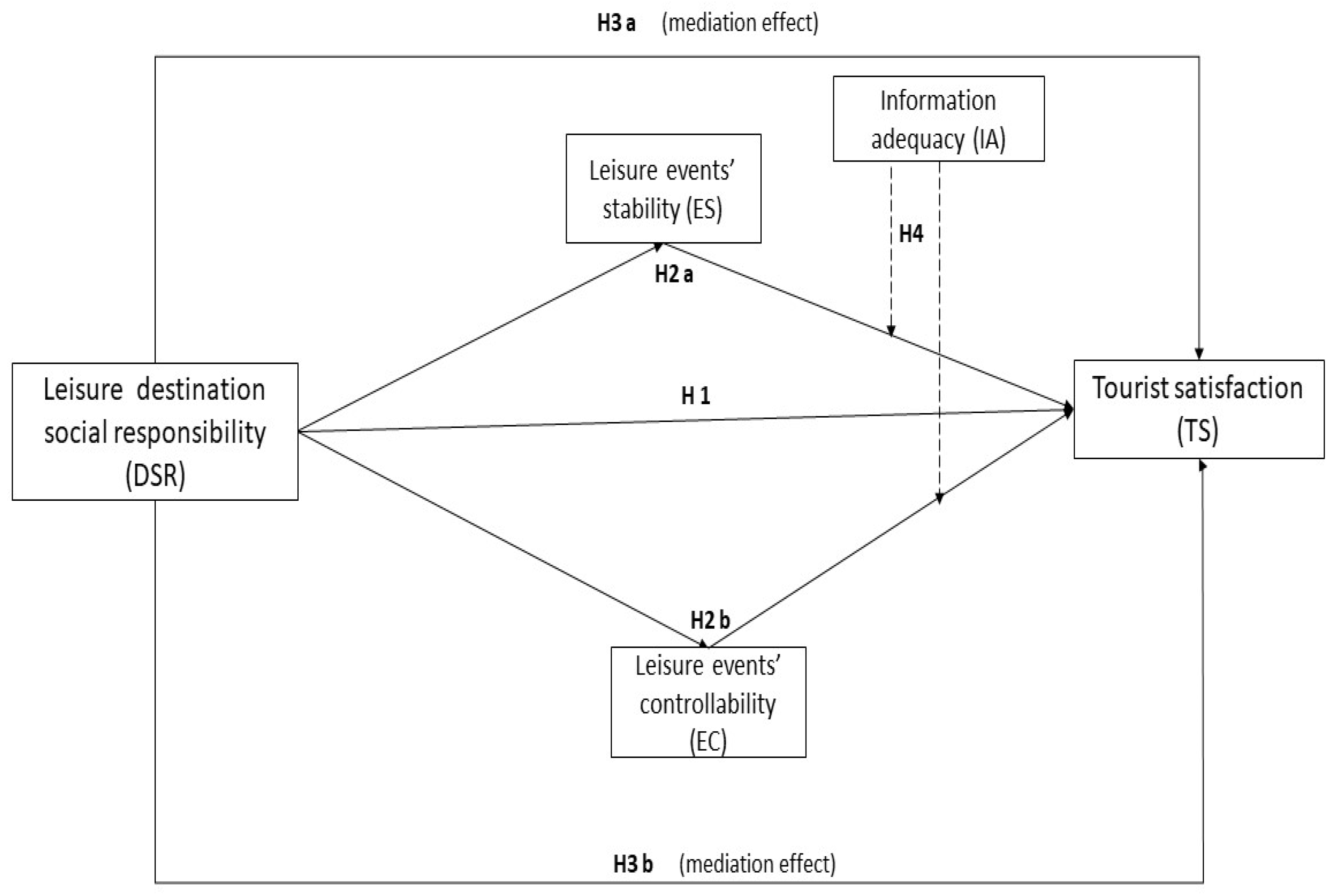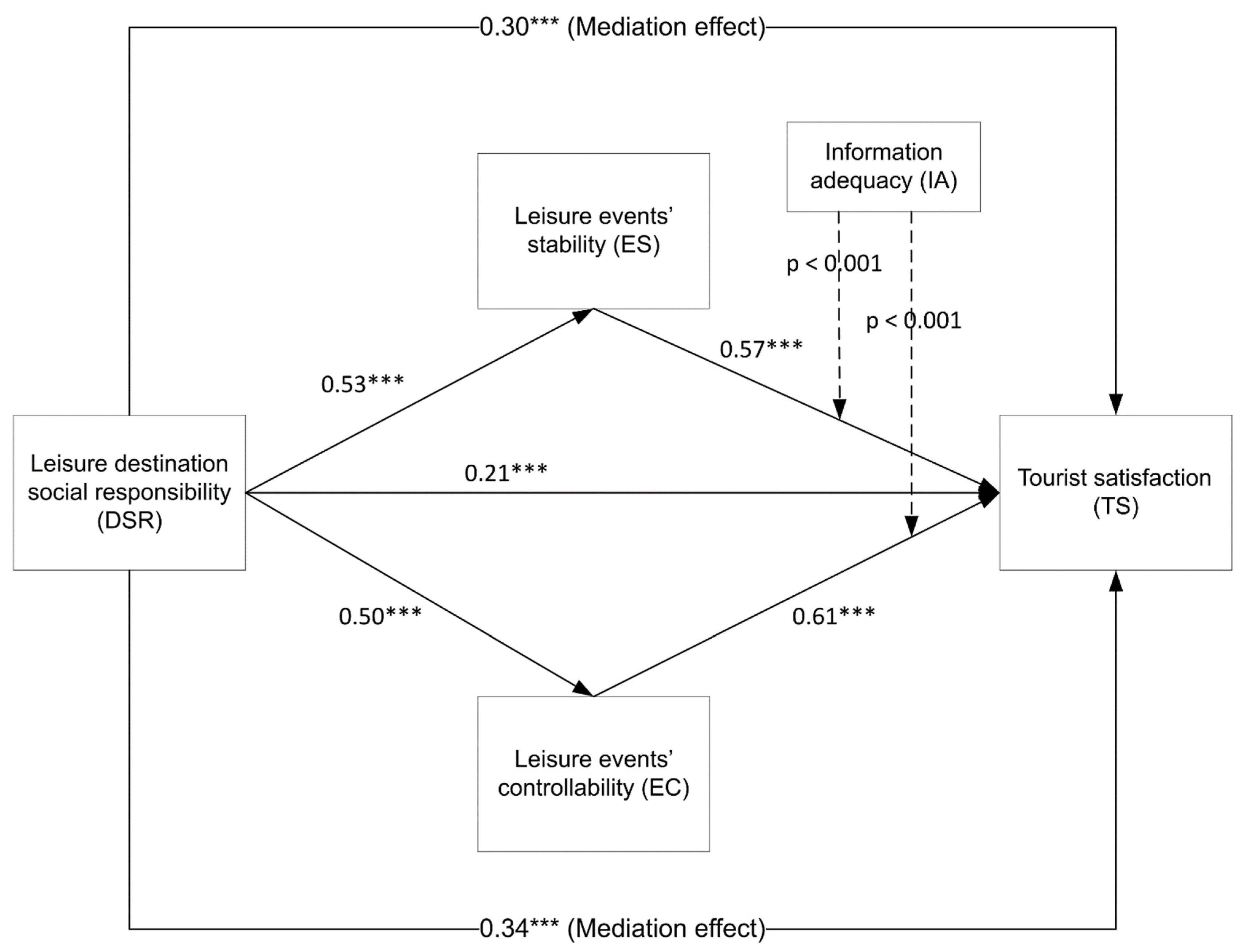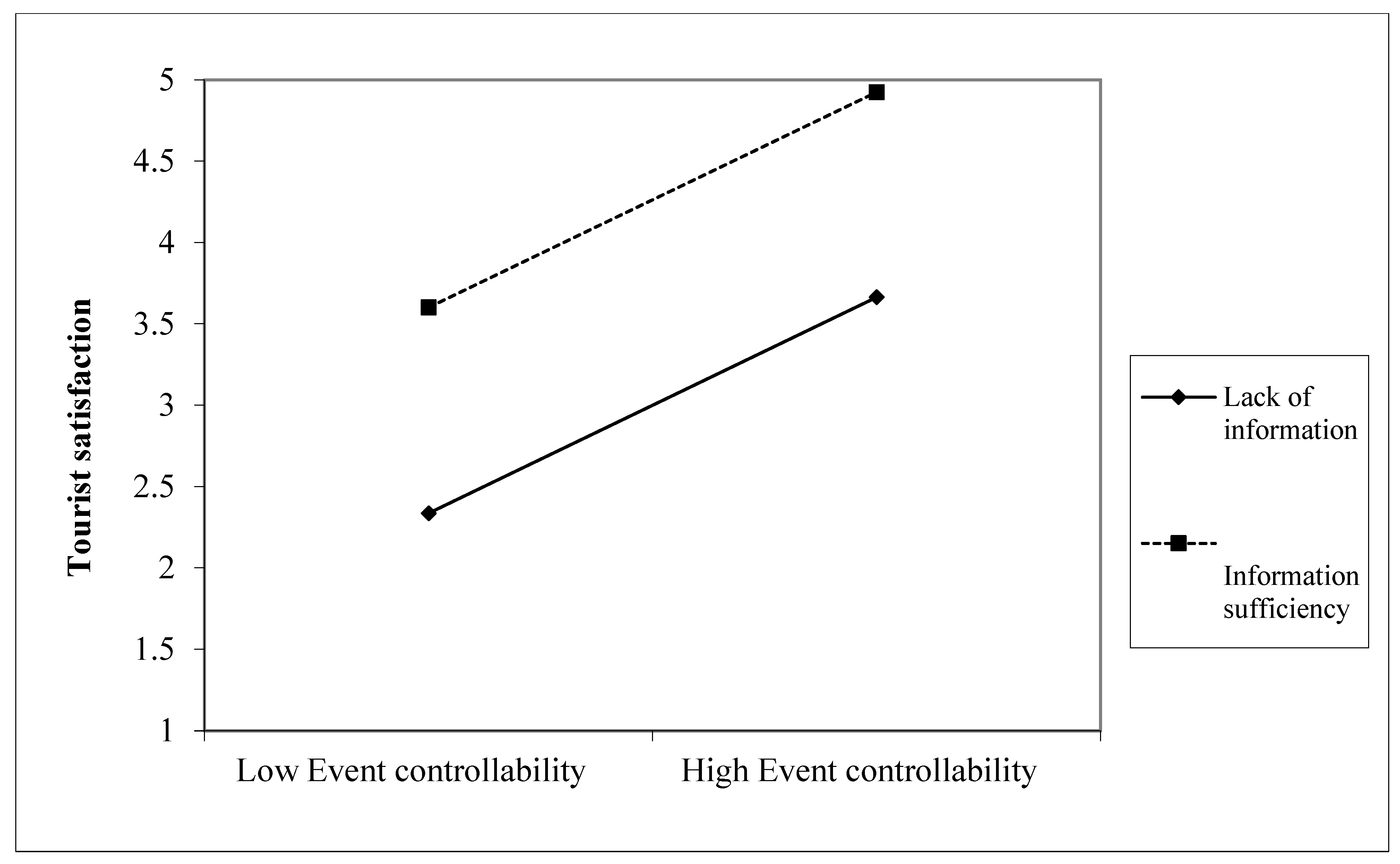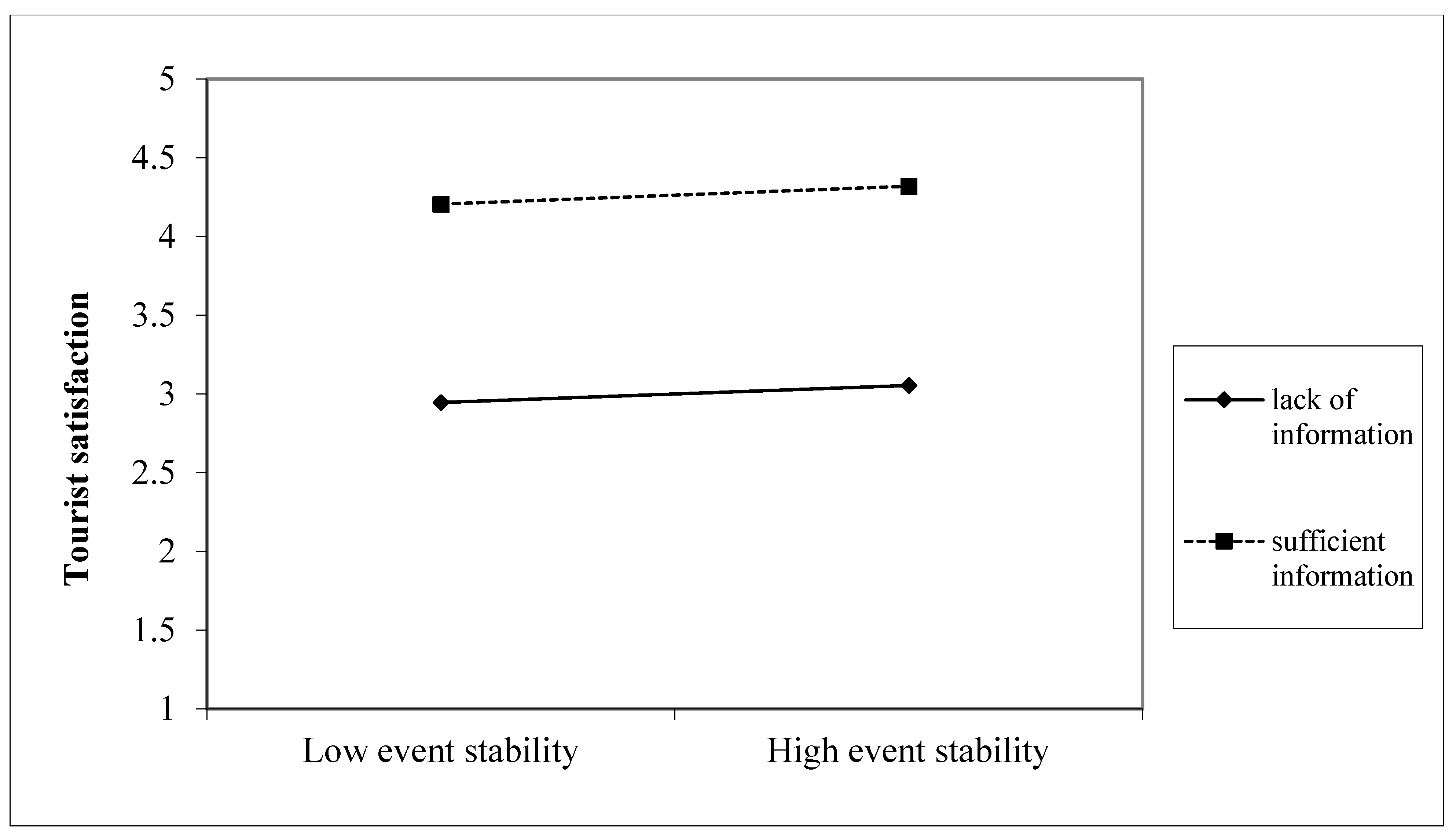1. Introduction
The leisure concept in tourism studies could be experienced as emotive responses to freedom, pleasure, and feelings of control [
1,
2]. From a leisure service provider perspective, leisure tourists increasingly emphasize participation in active leisure activities, such as water sports activities, parties, bowling, hiking/walking, skating, bicycling, horseback riding, golfing, curling, skiing, and swimming. Adopting active leisure activities encourages leisure service providers to strategize tourists’ event experiences to maintain positive experiences [
3]. According to Pergams and Zaradic [
4], some tourists prefer to stay home instead of traveling and engaging in leisure activities to promote electronic entertainment. However, most individuals choose to interact physically with nature and engage in leisure activities [
1]. Although destination leisure event activities have significantly increased in tourism destinations, leisure tourism literature has not investigated leisure tourists’ perception of social responsibility initiatives by leisure resorts [
5]. The literature also lacks investigation of leisure tourists’ personality differences in perceiving resorts’ social responsibility initiatives concerning destination leisure events’ nature (unpredictable events).
Tourism scholars have highlighted that the big umbrella of social responsibility initiatives is the concept of corporate social responsibility (CSR) [
6]. Corporate social responsibility is defined as initiatives that advocate the extension of responsibilities beyond profitability tendencies to help society and other stakeholders represent a better life for host destinations and tourists [
7]. For the importance of social responsibilities on tourist attitudes, recent tourism scholars have developed the destination social responsibility concept (DSR); the DSR concept has stemmed from the (CSR) concept [
8,
9]. Leisure tourism resorts could engage in initiatives from different perspectives: economic (e.g., local profits and helping locals to have professional training), environmental (e.g., conservation of host destination environmental assets), and social (e.g., enhancing locals’ well-being) [
10,
11]. According to Su et al. [
12], all these perspectives represent a critical tendency to maintain tourists’ positive attitudes toward the host destinations. Consumer behavior literature has highlighted that when service providers engage in social responsibility initiatives, individuals are likely to have positive behavioral outcomes [
13,
14]. Hence, the current study investigates leisure tourism resorts’ destinations’ engagement in social responsibilities’ impact on leisure tourists’ behavioral outcomes.
Importantly, although tourism leisure resort initiatives may enhance tourists’ behavioral outcomes, tourism management literature has emerged to confirm that tourists are not entirely rational but get affected by different events during holidays [
15]. Thus, social initiatives may not positively influence tourists’ behavioral outcomes if events are unstable. Leisure tourists become more familiar with the nature of concrete fears because destination leisure events’ nature could be unpredictable [
16]. Leisure tourists during holidays may encounter risks, and they tend to avoid them by targeting destination leisure events that could be more stable and controllable [
17], leading them to not care about service providers’ initiatives toward destinations (e.g., CSR initiatives) [
18]. Therefore, the current study adds additional contributions by studying the interdependence of destination leisure events’ nature of stability and controllability besides leisure resorts’ engagement in social responsibility on tourists’ behavioral outcomes. We employ attribution theory dimensions to study the events’ nature because attribution theory has three main dimensions: (locus of control—it is related to who we should assign the responsibility for various events); (stability—it is associated with the condition under which events are recurring); and (controllability—it is related to the condition under which events are under service providers’ control) [
19,
20]. We employ the last two dimensions to achieve the study’s second contribution.
Notably, while investigating two attribution dimensions (controllability and stability), it is crucial to examine information adequacy as a prominent tool that affects tourists’ attribution toward events [
21]. According to attribution theory, information adequacy helps individuals find better justification and interpret different events [
22]. Moreover, it helps the individual avoid unexpected events [
23], leading to a positive attitude [
22]. Hence, the current study also examines how information adequacy affects the stability and controllability of leisure tourism events.
Moreover, a crucial point that lacks attention to leisure tourists’ attribution in different events, is tourist leisure personality. Tourism researchers have concentrated on how different personalities have different attributions toward various events. For instance, extraverted personalities seek adventure tourism with risky activities that require effort [
24,
25]. In contrast, introverted personalities are likely to be shy, like a quiet environment, and prefer relaxing activities [
26]. However, leisure tourism researchers lack research about how different leisure tourists’ personalities affect different behavioral outcomes. According to Leung and Law [
24], tourists interact and judge various activities depending on their personalities. Hence, we contribute to such a gap by studying how different personalities lead to different attributions toward leisure resorts’ social responsibility initiatives and the destination leisure event natures.
The present study introduces a valuable contribution to tourism and event literature discourse with several important considerations. First, the correlation between tourists’ behavioral outcomes and social responsibility initiatives is examined within the leisure tourism scope. Second, this avenue of research explores social initiatives from attribution theory dimensions, such as stability and controllability. Third, we investigate the leisure tourists’ personalities to analyze their behavior towards destination leisure events and resort initiatives which is crucial due to the influence of individual characteristics on behavioral outcomes. Fourth, the study evaluates the role of information adequacy concerning the social initiative and attribution theory within the scope of tourism and leisure. Understanding and filling the gaps in these areas is highly beneficial in providing a deeper comprehension of leisure tourism engagement in the social responsibility initiatives process and how such knowledge could bring important managerial implications in tourism resorts.
From the previous contribution aims, we can identify the following research questions and objectives: Research Questions: 1. What is the correlation between tourists’ behavioral outcomes and social responsibility initiatives within the leisure tourism scope? 2. How do social initiatives from attribution theory dimensions, such as stability and controllability, impact leisure tourists’ personalities and behavior? 3. What role does information adequacy concerning the social initiative and attribution theory have within the scope of tourism and leisure? Objectives: 1. To examine the correlation between tourists’ behavioral outcomes and social responsibility initiatives within the leisure tourism scope; 2. To evaluate the impact of social initiatives from attribution theory dimensions, such as stability and controllability, on leisure tourists’ personalities and behavior; 3. To analyze the role of information adequacy concerning the social initiative and attribution theory within tourism and leisure; 4. To identify managerial implications in tourism resorts stemming from understanding leisure tourism engagement in the social responsibility initiatives process.
The outline of this academic article follows an order of study to demonstrate an overall idea from the persuasive research of attribution theory and its dimensions. In the next section, the literature review of attribution theory and its dimensions provides foundational information on the concept. Afterward, information adequacy and tourist characteristic types are highlighted for further understanding. Following this, the method section explains the methodological techniques and results with the use of SEM and ANOVA tests. Finally, the results are discussed, and a final consideration of theoretical and managerial implications is provided to conclude the article.
5. Conclusions and Implications
With the increasing number of tourists, tourism marketing scholars have opened up arguments about the importance of social responsibilities toward host destinations [
19] and its impacts on tourists’ behavioral outcomes [
6]. However, with the representation of leisure tourism events and spatial consumption, there is a noticeable gap in examining the social responsibility benefits of leisure tourists in a specific leisure tourism context. There is also less intention to explore the nature of destination leisure events regarding the stability and controllability concepts. Additionally, there is a wide gap in recognizing leisure tourists’ personalities regarding the events’ dynamics of the tourism experience. Therefore, the current study addresses these gaps and contributes to tourism leisure management literature as follows:
First, we illustrate the need to study how leisure resorts’ engagement in social responsibility impacts leisure tourists’ behavioral outcomes. We have found that leisure tourists who perceive that leisure resorts engage in social initiatives (e.g., host community sustainability enhancement) are likely to have positive emotions with satisfaction. That is because social responsibility in tourist destinations has positive impacts on host destination infrastructure and superstructure improvement [
9], increases resident satisfaction [
19], and increases tourist engagement in destination activities [
8]. Leisure tourists in nature like to engage in different sets of exercises in leisure destinations [
3] and interact with the environment [
2]. Therefore, when leisure tourists find resorts that interact and care about the environment and different activities in host destinations through the DSR initiatives, they are likely to get satisfied.
Second, we examined the destination leisure events regarding events’ stability and controllability through the attribution theory lens. Leisure tourism events (e.g., parties, camps, sports activities) are not stable or controllable all the time [
5] because leisure tourists may encounter external or unpredictable events during holidays [
1,
29]. Unanticipated events are a barrier between tourists’ and service providers’ initiatives that enhance tourists’ behavioral outcomes. Therefore, we studied how destination leisure events’ stability and controllability could affect the relationship between resorts’ DSR initiatives and tourists’ behaviors. We found that leisure tourists care more about leisure activities’ controllability than stability; needless to mention that stable events are crucial, but controllability comes as a priority, according to our results.
When leisure resorts offer diverse leisure activities that they can control, leisure tourists recognize that they are more likely to reuse these activities (stability: permanent leisure activities) [
18], and they realize that the resorts can control and prevent adverse events (controllable) [
42]. In this vein, leisure tourists will have satisfaction with leisure resorts. When leisure tourists are satisfied, they respond to different side activities [
51]. Social responsibility activities have the most side activities that could offer a sub-optimal economic performance to tourists by providing value-added tendencies [
13]. Recent literature highlighted that tourists could perceive the advantages of different destination side activities if they felt stability and controllability during their holiday [
9,
10]. That is why destination leisure event stability and controllability positively mediate the relationship between leisure resorts’ DSR initiatives and tourist satisfaction.
Third, we have embedded information adequacy about destination leisure events as a moderator between tourism destination leisure events’ stability, controllability, and leisure tourist satisfaction. Consistent with recent research, information adequacy influences attribution processes [
45]. Thus, information adequacy could strengthen tourists’ perceptions of destination leisure events’ stability and controllability as attribution dimensions. Our results show that information adequacy strengthens the relationship between destination leisure events’ stability, controllability, and satisfaction of leisure tourists. Tourists collect information about potential trips before traveling to destinations [
69]. Tourists with sufficient information about destination events are less likely to encounter risks during holidays [
70], and given that leisure tourists are likely to experience risks during holidays [
16]. Therefore, with the information, leisure tourists will likely perceive stable and controllable events [
71] in leisure resorts and then have strong satisfaction.
Fourth, we found that extraverted and conscientious leisure tourists are likely affected by social responsibility initiatives and controllable events by leisure resorts. That is because the more active leisure tourists are, the more likely they are to encounter unpredictable events [
29] and interact with distinct circumstances [
28]. Additionally, because DSR helps prevent adverse events, they are likely to be affected by such initiatives. They also tend to find controllable events [
18], because event controllability ensures positive behavioral outcomes by engaging in different holiday activities [
42]. We also found that neuroticism, openness, and agreeableness focused more on destination leisure event stability. That is because these personalities are less likely to engage in different activities and make an effort during holidays; the lower engagement in destination leisure events, the less effort is made by tourists [
1,
5]. When tourists have low effort, they care more about securing the events than the events’ controllability [
18]. Thus, leisure tourists have different behavioral outcomes depending on their personalities.
Our study findings provide crucial theoretical contributions and managerial implications regarding the previous results. This paper is the first to contribute to tourism management literature and sustainability studies by demonstrating that tourists’ perceptions of destination sustainability initiatives (DSR) are contingent upon the controllability and stability of events and that extraverted and conscientious tourists reach different attributions on DSR than those with levels of neuroticism, openness, and agreeableness. Additionally, it appears that information adequacy concerning the controllability of events is privileged over events stability about informant amount with DSR. It is crucial to study the findings presented in this paper as they provide valuable insights into how tourists perceive DSR initiatives. By understanding how tourists perceive these initiatives, tourism managers can better tailor their strategies to meet the needs of their target audience.
Furthermore, this research provides a foundation for further research into how different personality traits affect perceptions of DSR initiatives. This could help inform future marketing campaigns and product development strategies for tourism destinations. Additionally, this research could be used to inform policymakers on how best to promote sustainable tourism practices in their regions. Overall, this paper makes an essential contribution to the tourism management literature and sustainability studies by demonstrating how different personality traits affect perceptions of DSR initiatives. This research has the potential to inform future marketing campaigns and product development strategies for tourism destinations, as well as inform policymakers on how best to promote sustainable tourism practices in their regions.
5.1. Theoretical Contribution
The present study contributes to leisure tourism management literature in several ways. First, it is one of the first studies to apply the corporate social responsibility concept and attribution dimensions (stability and controllability) in the leisure tourism context. However, tourism marketing and management literature have widely examined destination social responsibility effects on tourists’ behavioral outcomes [
19,
72]. Few studies have attempted to investigate resorts’ leisure social responsibility benefits considering destination leisure events’ nature. This research extends corporate social responsibility theory in the tourism context by examining destination leisure events’ nature (stability and controllability) as mediators between leisure resorts’ DSR and leisure tourists’ satisfaction. It adds to our understanding of how leisure tourists’ attributions about stability and controllability of destination leisure events lead to satisfaction; this contributes to the current literature on corporate social responsibility in the tourism context [
8,
10,
19], along with leisure tourism literature.
Second, the current study is the first to highlight how different leisure tourists’ personalities have different behavioral outcomes toward social responsibilities concerning destination leisure events’ natures. We found that leisure tourists have different behavioral outcomes regarding their willingness and effort while engaging in various leisure activities. Thus, studying tourists’ personalities in the tourism leisure literature contributes to the current literature in the leisure tourism context [
1,
5].
Third, the study adds information adequacy as a new construct to moderate leisure tourists’ attribution processes. These results help develop a comprehensive theoretical framework and contribute to information adequacy arguments in tourism literature [
23,
70,
71] by clarifying how leisure tourists could remain stable and controllable attributions toward leisure resorts with sufficient information about leisure tourism events. Additionally, the study confirms the service failure literature [
73] by demonstrating that service stability and controllability positively influence tourist satisfaction. It also adds to service failure literature that information adequacy could strengthen the tourists’ positive attribution concerning tourism events’ stability and controllability to avoid service failure.
Moreover, this paper is the first in tourism research and destination social responsibility to address the issue of how leisure tourists’ personalities are associated with the influence of social responsibility initiatives and controllable events by leisure resorts. The findings suggest that extraverted and conscientious leisure tourists are likely to be affected by such initiatives due to their greater engagement in different holiday activities. Meanwhile, neuroticism, openness, and agreeableness focused more on the stability of the destination leisure events. This research provides valuable insight into how leisure tourists respond differently to DSR initiatives and controllable events, which might help inform the tourism industry.
5.2. Managerial Implications
The focus of any tourism institutional or non-institutional goals should be to promote the tourists’ and stakeholders’ well-being. The findings demonstrate that the Red Sea leisure resorts’ engagement in social responsibility initiatives will maintain tourist satisfaction. Thus, the Red Sea leisure resort managers and government officials (Ministry of Tourism) should concentrate on imposing formal and informal legislation to apply social responsibility initiatives in such resorts. For instance, the Red Sea leisure resorts’ managers may engage in Mariot’s “serve 360, doing well in every direction” strategy, and Hyatt (CSR practices) (see: [
74,
75]), as an example of practices that help leisure destinations to remain sustainable sites and enhance host community living standards along with leisure tourists’ satisfaction. Additionally, as local cultural exhibitions consider one of the popular initiatives companies perform to enhance host living standards, we recommend that Red Sea leisure resort managers offer local cultural exhibitions in their resorts. On the one hand, leisure tourists will indirectly engage in social responsibility initiatives. On the other hand, engaging in such activities allows tourists to perceive that destination leisure events are controllable and stable by offering such exhibitions as a leisure destinations’ side activity.
Along with engaging in DSR initiatives, we recommend that the Red Sea resort managers maintain stable and controllable destination leisure events at the destination by providing plan B in their trip itinerary. Plan B should include different alternatives if some unpredictable events occur and may lead to unstable and uncontrollable destination leisure events (e.g., bad weather, traffic accident on trip roads, flight delays, problems in escorting process from airport to hotels, etc.). Applying such a plan (B) and informing leisure tourists about it on the destination website/or after tourists’ arrival will influence stability and controllability attribution toward events. In turn, this leads to receiving social initiatives more positively and achieving a high level of tourist satisfaction. Additionally, Jackson [
18] highlighted that lack of harassment and poorly-developed infrastructure negatively influences event stability and controllability at the destination. Therefore, the Red Sea resort managers and government officials should impose stand-alone rules that eliminate harassment (verbal and nonverbal) and improve the infrastructure/superstructure (e.g., roads; it will help tourists control their holiday events).
Furthermore, according to the findings, information adequacy about the Red Sea leisure activities helps maintain stable and controllable destination leisure events, leading to satisfaction. Therefore, resort managers are recommended to provide sufficient information on their websites about the service offers and provide tourists with destination information assets (e.g., destination guide points map including all appointment points and emergency numbers). Moreover, the Red Sea leisure destination managers should develop stand-alone DSR programs, mainly as a gift to tourists, to increase tourists’ awareness about resorts’ social responsibilities activities, primarily if this DSR initiative is related directly to tourism events (e.g., getting involved in volunteer activities for volunteers’ tourism type).
Most importantly, our findings on leisure tourists’ personalities will help the Red Sea resort managers prioritize their target tourist characters’ social responsibility and the nature of entertainment events. We recommend that Red Sea resort managers prioritize providing information about social responsibility campaigns to tourists involved in different destination leisure events. We also recommend that managers prevent any negative outcome that eliminates destination leisure events’ controllability (Plan B) for extraverted and conscientious tourists. Likewise, we recommend that the Red Sea resort managers ensure recurring events and provide a diversity of destination leisure events for neuroticism, openness, and agreeableness tourists. By implementing the above suggestions, leisure resort managers and policymakers will maintain an inclusive benefit for leisure tourists’ satisfaction.
5.3. Limitations and Future Research
This study has several limitations. First, the samples were drawn from leisure tourists engaged in leisure activities in the Red Sea tourism resorts. The study also used Couchsurfing’s online tourism platform, and the samples were youthly leisure tourists’. Thus, we recommend that future researchers examine other representatives from different tourism platforms (e.g., tourism bloggers groups on social media), other tourism destination types, and other destinations (e.g., business, ecotourism, etc.) by considering gender and age balance. Additionally, the current study examines only two dimensions of attribution theory as mediators (stability and controllability). Thus, future studies may consider a tourist locus of causality as a mediator to study how assigning tourism events to internal versus external causes, may lead to different levels of satisfaction and the factors that stimulate a positive tourist locus. Future studies should also include whether the events’ stability and controllability differ regarding the resorts’ social responsibility types (active CSR versus proactive CSR initiatives). These suggestions will help better understand the best ways leisure tourists perceive social responsibility initiatives to maintain their satisfaction with holistic managerial implications in such approaches. Moreover, we cannot generalize these results to the general population because the sample was mostly students. This research provides important insights into how tourists perceive DSR initiatives. However, extrapolations to the larger population should be made with caution. We suggest that future studies further expand the sample size to add validity to the results. Additionally, studies should examine the impact of personality types within different geographical contexts, as it could lead to a more nuanced understanding of the relationships between tourists’ perceptions and DSR initiatives.













